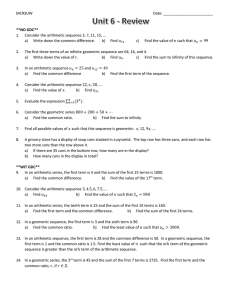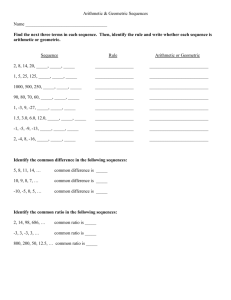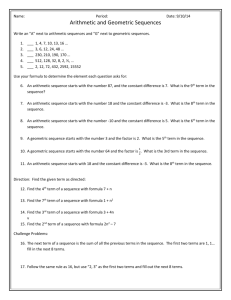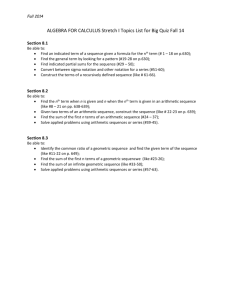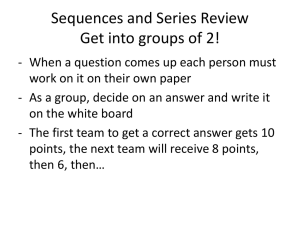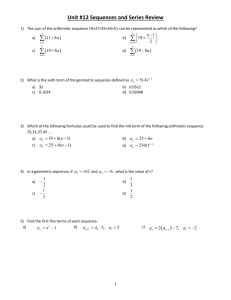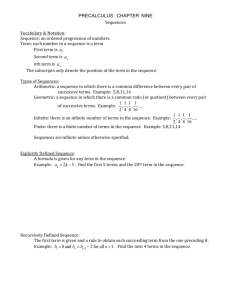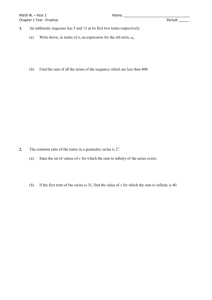Pre– Calculus 11 Ch 1: Practice Test Name:
advertisement
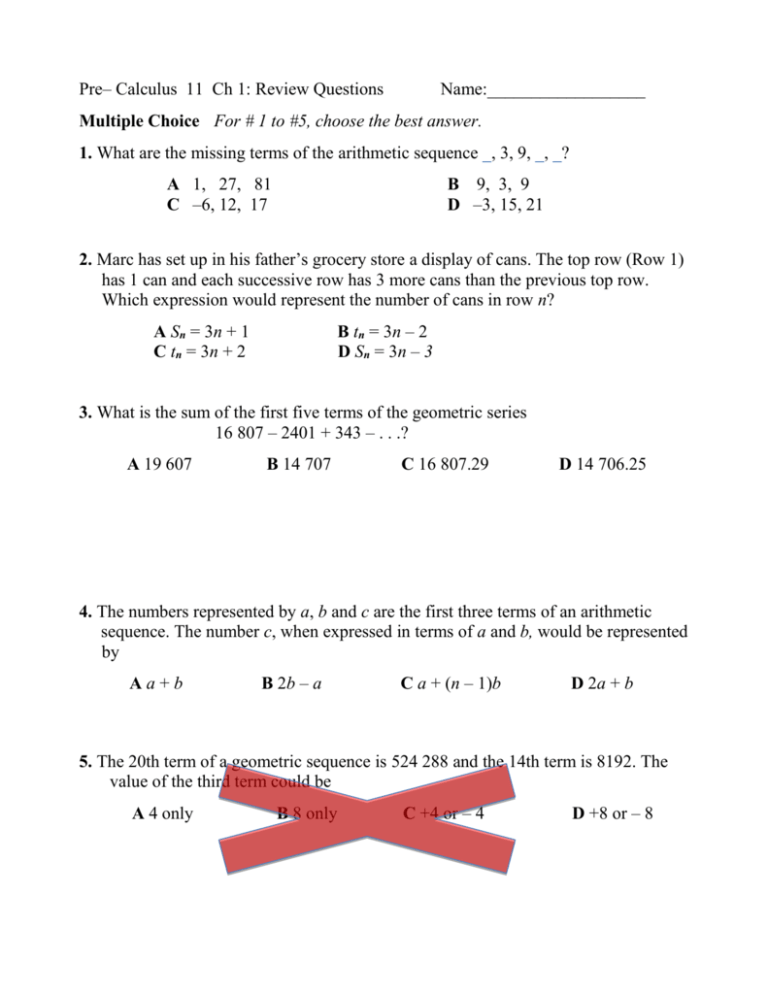
Pre– Calculus 11 Ch 1: Review Questions Name:__________________ Multiple Choice For # 1 to #5, choose the best answer. 1. What are the missing terms of the arithmetic sequence _, 3, 9, _, _? A 1, 27, 81 C –6, 12, 17 B 9, 3, 9 D –3, 15, 21 2. Marc has set up in his father’s grocery store a display of cans. The top row (Row 1) has 1 can and each successive row has 3 more cans than the previous top row. Which expression would represent the number of cans in row n? B tn = 3n – 2 D Sn = 3n – 3 A Sn = 3n + 1 C tn = 3n + 2 3. What is the sum of the first five terms of the geometric series 16 807 – 2401 + 343 – . . .? A 19 607 B 14 707 C 16 807.29 D 14 706.25 4. The numbers represented by a, b and c are the first three terms of an arithmetic sequence. The number c, when expressed in terms of a and b, would be represented by Aa+b B 2b – a C a + (n – 1)b D 2a + b 5. The 20th term of a geometric sequence is 524 288 and the 14th term is 8192. The value of the third term could be A 4 only B 8 only C +4 or – 4 D +8 or – 8 Short Answer 6. A set of hemispherical bowls are made so they can be nested for easy storage. The largest bowl has a radius of 30 cm and each successive bowl has a radius 90% of the preceding one. What is the radius of the tenth bowl? 7. Use the following graphs to compare and contrast an arithmetic and a geometric sequence. 8. If 3, A, 27 is an arithmetic sequence and 3, B, 27 is a geometric sequence where B > 0, then what are the values of A and B? 9. Josephine Mandamin, an Anishinabe elder from Thunder Bay, Ontario, set out to walk around the Great Lakes to raise awareness about the quality of water in the lakes. In six years, she walked 17 000 km. If Josephine increased the number of kilometres walked per week by 2% every week, how many kilometres did she walk in the first week? 10. Consider the sequence 5, , , , , 160. a) Assume the sequence is arithmetic. Determine the unknown terms of the sequence. b) What is the general term of the arithmetic sequence? c) Assume the sequence is geometric. Determine the unknown terms of the sequence. d) What is the general term of the geometric sequence? 11. Scientists have been measuring the continental drift between Europe and North America for about 25 years. The data collected show that the continents are moving apart at a steady rate of about 17 mm per year. a) According to the Pangaea theory, Europe and North America were connected at one time. Assuming this theory is correct, write an arithmetic sequence that describes how far apart the continents were at the end of each of the first five years after separation. b) Determine the general term that describes the arithmetic sequence. c) Approximately how many years did it take to separate to the current distance of 6000 km? d) What assumptions did you make in part c)? Pre– Calculus 11 Ch 1: Review Questions Name:___KEY_______________

